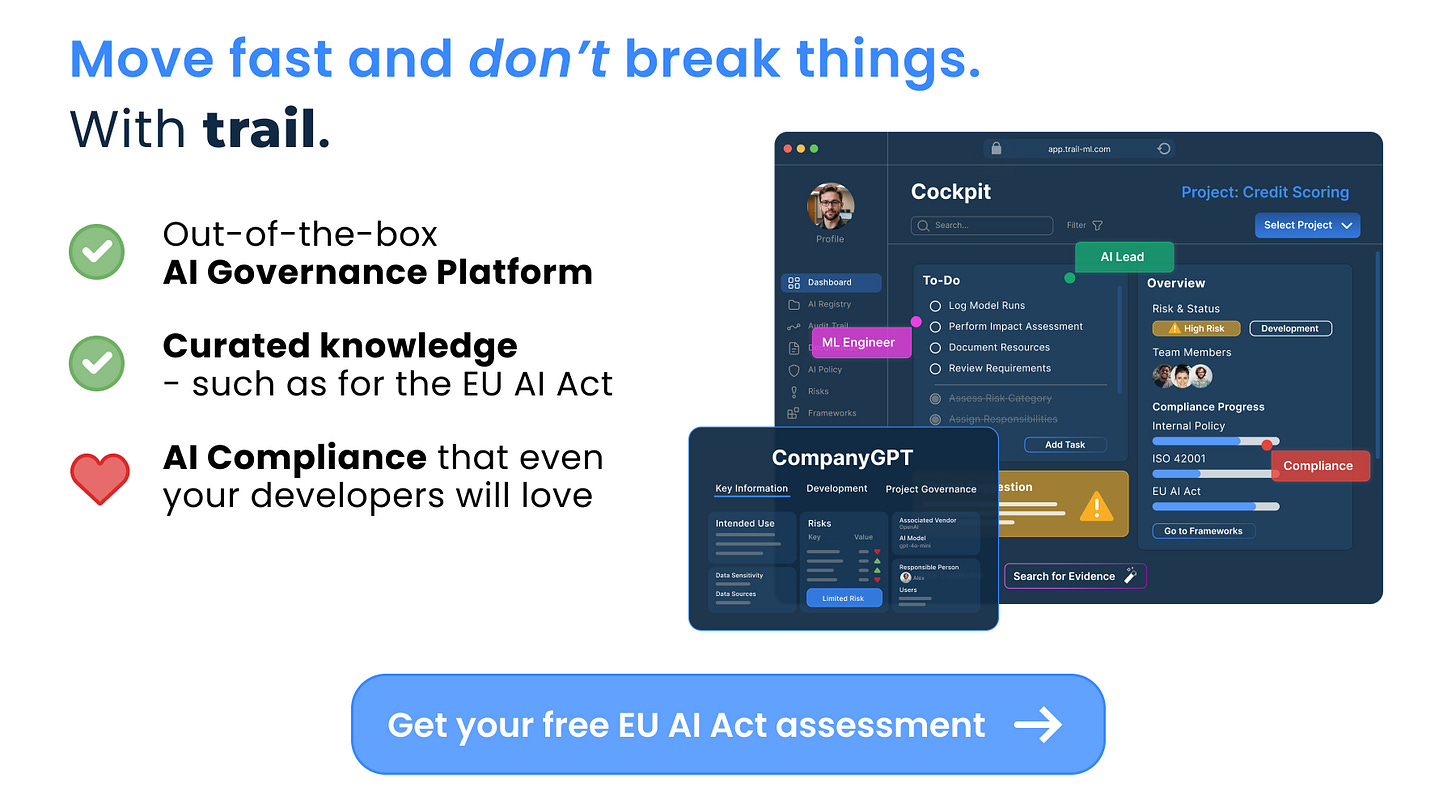Becoming Future-Proof: Part 2
As AI creates new uncertainties in the job market, learning to become future-proof is a strategic skill | Edition #239
👋 Hi everyone, Luiza Jarovsky here. Welcome to the 239th edition of my newsletter, trusted by more than 79,800 subscribers worldwide. It is great to have you here!
🎓 This is how I can support your learning and upskilling journey in AI:
Join my AI Governance Training [apply for a discounted seat here]
Meet peers and ask questions in my private community
Discover your next read in AI and beyond with our AI Book Club
Receive our job alerts for open roles in AI governance and privacy
Sign up for weekly educational resources in our Learning Center
👉 A special thanks to Trail, this edition's sponsor:
AI regulation doesn’t need to slow you down. Trail’s AI governance platform guides you step by step with curated, actionable knowledge through your governance requirements. It even automates compliance tasks for your AI developers! Learn more about Trail and get a free EU AI Act assessment of your AI use case.
*To support us and reach over 79,800 subscribers, become a sponsor.
Becoming Future-Proof: Part 2
In the first part of this three-part series, I wrote about the awareness phase, which starts by acknowledging that a technological and social AI wave is underway and is affecting the job market.
I discussed the critical questions you should continuously ask yourself regarding your field, work, and skills, as well as essential actions you can take right now to help you create a productive environment to become future-proof.
Becoming future-proof requires continuous effort and a genuine interest in professional growth and excellence. Today, I will cover the second phase: upskilling.
*This is Part 2 of a three-part series on becoming future-proof, available in full to paid subscribers. Start with Part 1 here.
Part 2: The Upskilling Phase
AI development and deployment are constantly evolving, and you will need to continually monitor how AI affects your field, what new trends, tools, risks, and threats are emerging, and how your peers (and the world) are reacting to them. You can rely on the questions and tips I have proposed here.
After you have focused on understanding AI's impact and emerging trends, both in general and specifically related to your field, the next step is to assess your professional risk and the skills you might need to focus on to remain relevant, competitive, and future-proof.
At this point, you will need to reflect on where you currently are in your professional journey:
How many years of professional experience do you have?
From the perspective of your field, are you an entry-level, mid-level, or senior-level professional?
Are you planning to stay in the same career over the next few years, or are you considering a transition to another field?
Below are my specific comments on upskilling for each seniority level:




